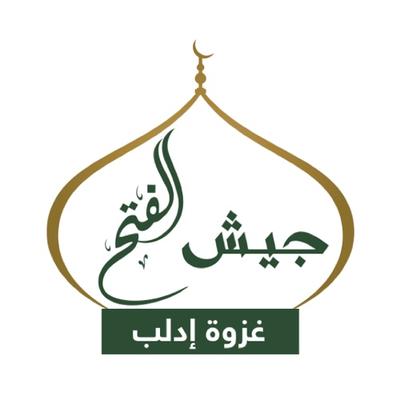
The Rise of Jaysh al-Fateh in Northern Syria
Publication: Terrorism Monitor Volume: 13 Issue: 12
By:

A new Islamist coalition called the Army of Conquest (Jaysh al-Fateh) has in the last few months have scored significant victories against the Syrian government, capturing most of Idlib province (al-Jazeera, June 6). The group also possibly plans to attack the Syrian government positions in Aleppo, Hama, Homs and Lattakia, most recently cutting off a key supply route to Aleppo (al-Sharq al-Awsat, June 6). The newly formed Islamist coalition mainly attacks the Syrian government, but it is also involved in clashes with the Islamic State in northern Aleppo. [1] The new coalition’s remarkable success, such as its capture of Idlib only a few days after its official founding on March 24, seems to be due to a number of factors (Syria Direct, March 25). These include: new cooperation against the Syrian government by key regional powers (Turkey, Saudi Arabia and Qatar) after years of disunity, the Syrian government’s lack of manpower, new coordination between rebel groups and the defeat of U.S.-backed groups in Idlib, which resulted in this coalition acquiring their heavy weapons.
Foundation
Jaysh al-Fateh was formed in March 2015, and includes most Islamist rebel groups, with the prominent exception of the Islamic State. According to a Jabhat al-Nusra source, the alliance controls in between 12,000-15,000 fighters. [2] The coalition includes most importantly al-Qaeda’s Syrian front, Jabhat al-Nusra, which is led by Abu Muhammed al-Julani. Moreover, it also includes other Islamist rebel groups such as Jund al-Aqsa, Ahrar al-Sham, Liwa al-Haqq, Jaysh al-Sunna, Ajnad al-Sham and Faylaq al-Sham (Syrian Observatory for Human Rights, June 6). The coalition also has relations with other groups such as the Islamic Army, which it cooperated with against Assad in Jisr al-Shughur and against the Islamic State in north Aleppo. [3] Reportedly, Faylaq al-Sham is backed by Saudi Arabia, while Ahrar al-Sham reportedly receives support from Turkey (Zaman al-Wasl, May 15; al-Jazeera, April 5).
Cooperation Between Allies
According to some sources, the new success of the rebel coalition is the result of a new détente between Qatar, Turkey and Saudi Arabia, which aims to stop what they see as Iran’s expansion in the region, leading to a joint decision to collectively support Sunni rebels against the Syrian government (al-Jazeera, May 24). There are several indications that Turkey and Saudi Arabia at least support members of this new alliance against the Syrian government, and several meetings were held in Turkey. In addition, a statement released by Faylaq al-Sham in May supported Saudi Arabia’s actions against the allegedly Iranian-backed Houthi movement in Yemen, underlining the regional dimensions of this anti-Iranian alliance (Zaman al-Wasl, May 15). Moreover, Turkey maintains a close relation with Ahrar al-Sham, and Turkish intelligence has most likely has been shipping weapons to Ahrar al-Sham (al-Jazeera, April 5; Al-Monitor, June 2).
It is not only Western analysts who suggest that Jaysh al-Fateh is backed by regional groups; the Islamic State also accuses Turkey, Saudi Arabia and Qatar of funnelling aid to the rebel coalition to help them to both combat Assad in Idlib and Qalamoun and to attack the Islamic State in Qalamoun. [4] The Islamic State has tried to argue that any group that allies with such “apostates” is itself apostate, in order to discredit Jabhat al-Nusra and to justify attacks against the group. Other rebel groups see no problem in receiving support from other states, as long as it is used against the Syrian government of Assad and not other Islamic rebel groups. This indicates that more clashes between the Islamic State and Jaysh al-Fateh (and Jabhat al-Nusra) will happen in the future in northern Aleppo and Qalamoun. And that even if Assad is weakened in Idlib and Aleppo, there might be more clashes between the Islamic State and its rivals.
Coordination
However, a Jabhat al-Nusra fighter nicknamed Abu Muhammad Holandi, who is in contact with that group’s leadership, denies any financial link between Jaysh al-Fateh and Saudi Arabia, Turkey and Qatar, and says that there is no joint cooperation to stop Iran’s expansion in the region:
He suggested that the main reason for the successes of the alliance is not due to foreign support, but coordination and unity between the rebel groups that defeated Assad in Idlib. Moreover, he said that the fact the groups share with Saudi Arabia and Qatar a common enemy in Iran does not necessarily make Jabhat al-Nusra and other groups allies: “There is no cooperation at all with these countries, everything that Nusra carries out is in cooperation with these groups.”
While the Islamic State wants other groups to swear allegiance, Jabhat al-Nusra’s comparative flexibility and pragmatism has led to it receiving support from some parts of the Syrian population, which has enabled it to fight the Syrian government more effectively. In addition, Jabhat al-Nusra has reportedly formed several joint operation rooms with other groups which are part of Jaysh al-Fateh, which are also better equipped through receiving arms, ammunition and supplies from Turkey and the Saudis (International Business Times, March 31).
Increased Capabilities
Jabhat al-Nusra’s supporters also say that another key factor in the group’s rise is its earlier defeat of U.S.-backed groups, such as Harakat Hazm and its allies and the Syrian Revolutionaries Front (SRF) in November 2014, have also enabled it to refocus its efforts on defeating Assad. Holandi said:
The defeat of the U.S.-equipped groups and the capture of their equipment also substantially empowered Jabhat al-Nusra. This equipment included anti-tank TOW missiles that were used against Assad by Jaysh al-Fateh in Idlib (Washington Post, March 1). On these, Hollandi remarked: “Furthermore, there is now a high amount of a certain weapons. Guided anti-tank missiles now provide us an opportunity to inflict heavy damage on the army of Assad in other ways. The battle changed from a guerrilla war into a real army versus army war.” It is unclear if the non-Jabhat al-Nusra groups in the coalition are also receiving guided anti-tank missiles from regional Sunni countries backing the alliance.
Conclusion
Jaysh al-Fateh is likely to continue to expand in Sunni areas around Idlib and other parts of northern Syria due to Jabhat al-Nusra’s relative pragmatism, its coordination with other groups, the Syrian government’s lack of manpower, increased regional cooperation to stop Iranian expansion and its newly acquired weapons. If the alliance is not attacked by the Islamic State, it is possible for it to continue to expand in Aleppo and other Sunni-majority provinces in the coming months. It is, however, unlikely that the new alliance will take the capital Damascus in the near future, or the Alawite heartland of western Syria, and it is also likely that Assad’s allies (such as Iran) will try to send more support to counter Jaysh al-Fateh’s advances. That said, further support of regional Sunni countries for the Islamist factions that compose Jaysh al-Fateh would most likely lead to more tensions between these countries with the United States, which is more concerned with halting the Islamic State than toppling Assad. In addition, it is possible that further successes by Jaysh al-Fateh will likely lead to renewed clashes between the Islamic State and Jabhat al-Nusra in northern Syria and the Qalamoun region. In this scenario, the more territory Jaysh al-Fateh takes, the more competition will erupt between the jihadist factions of Jabhat al-Nusra and the Islamic State. Moreover, the Jaysh al-Fateh alliance itself is new and potentially shaky, and could fragment, as have other rebel alliances previously, for instance, due to different policies of Syria’s neighboring countries and pressure from outside powers to contain Nusra’s influence.
Wladimir van Wilgenburg is a political analyst specializing in issues concerning Iraq, Iran, Syria, and Turkey with a particular focus on Kurdish politics.
Notes
1. Testimony of Shaykh Abdullah al-Muhaysini regarding the attack by the Islamic State group against the mujahideen in North Aleppo, June 1, 2015, https://justpaste.it/lhfu.
2. Author’s online interview with Abu Mohammed al-Holandi, May, 2015. Al-Holandi’s real name is reportedly Abdelkarim al-Atrach. He is a Jabhat al-Nusra fighter based in Aleppo, and is also in contact with the group’s leadership. He gained notoriety in the Netherlands for releasing a video message after the U.S.-led coalition airstrikes killed three Dutch Jabhat al-Nusra fighters in September 2014, where he called for a “strong act” in the Netherlands in response.
3. Author’s interview with Abdurahhman Sy, spokesperson of the Islamic Army, through Skype, June 8, 2015.
4. Dabiq, 9th edition, Al-Hayat, May 21, 2015, https://jihadology.net/2015/05/21/al-%E1%B8%A5ayat-media-center-presents-a-new-issue-of-the-islamic-states-magazine-dabiq-9/.
5. Author’s online interview with Abu Mohammed al-Holandi, May, 2015.
6. Ibid.





